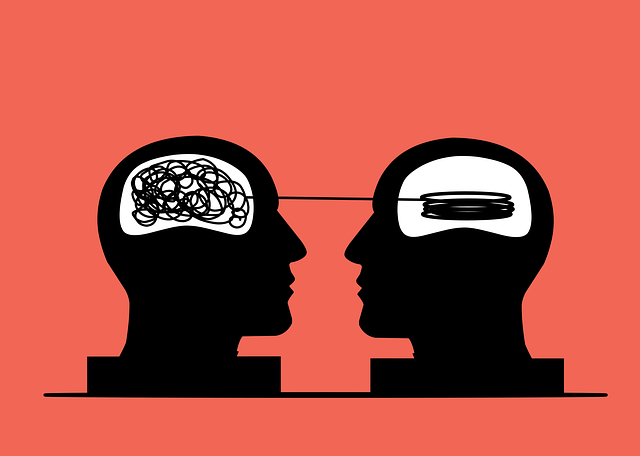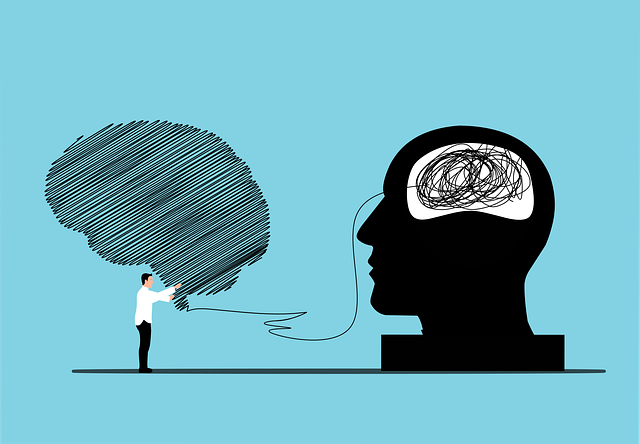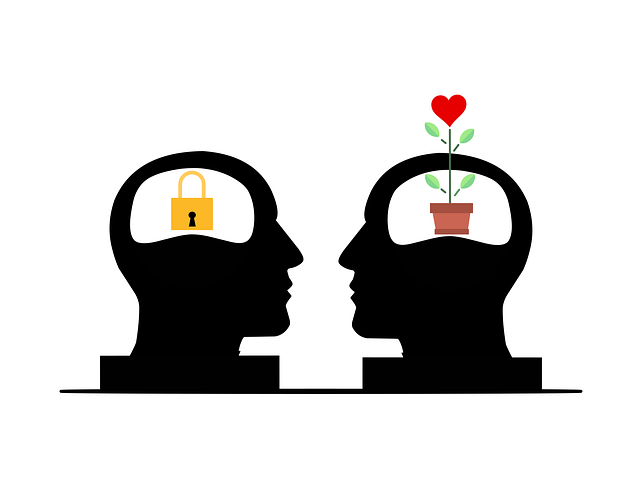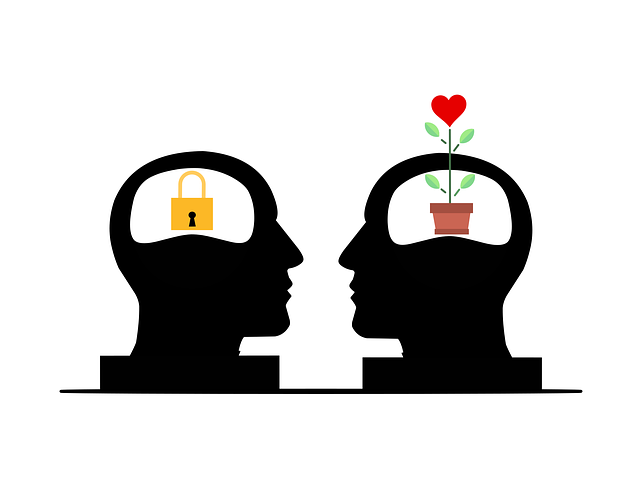Emotional disorders are common in today's stressful world, with depression and OCD among the most prevalent. Mental health counseling offers safe environments for individuals to understand and manage their emotions through identifying patterns, challenging unhelpful thinking, and developing personalized coping mechanisms. Therapists use evidence-based approaches like CBT and trauma-focused care, providing active listening, empathy, and constructive feedback. Choosing the right therapist is crucial; look for professionals who create a supportive environment, have relevant qualifications and experience, and align with your needs. Online vs. in-person counseling each have pros and cons, but both aim to build trust and foster open communication for effective treatment. Personalized treatment plans tailored to individual experiences enhance healing, while support systems like friends, family, or groups aid in building resilience and coping mechanisms.
Emotional disorders can significantly impact daily life, but help is available nearby. This comprehensive guide explores the role of therapists in mental health counseling and offers practical advice on finding the right support. From understanding common emotional issues to navigating online vs. in-person counseling, we provide insights into personalized treatment plans and building trust with your therapist. Discover local therapy services and learn how to foster a healthy mindset for lasting well-being.
Understanding Emotional Disorders: Recognizing Common Issues

Emotional disorders are prevalent in today’s fast-paced world, where stress and anxiety have become ubiquitous. From depression and bipolar disorder to phobias and obsessive-compulsive disorder (OCD), a wide range of mental health issues can significantly impact an individual’s daily life. Recognizing these disorders is the first step towards recovery. Mental health counseling offers a safe space for individuals to explore and understand their emotions, providing valuable tools for managing symptoms and improving overall well-being.
Common emotional disorders often manifest in various ways. Depression, for instance, may cause persistent feelings of sadness, loss of interest in activities once enjoyed, changes in appetite or sleep patterns, and fatigue. OCD, on the other hand, involves intrusive thoughts and repetitive behaviors designed to alleviate anxiety. By seeking mental health counseling, individuals can learn to identify these patterns, challenge unhelpful thinking, and develop healthy coping mechanisms tailored to their specific needs.
The Role of Therapists in Mental Health Counseling

Therapists play an indispensable role in mental health counseling, providing a safe and supportive space for individuals to explore their emotional well-being. Through effective therapy sessions, they help clients gain insights into their thoughts, feelings, and behaviors, fostering self-awareness and personal growth. Mental health counseling involves various evidence-based approaches tailored to address specific disorders or challenges, such as depression, anxiety, trauma, or relationship issues.
Therapists employ active listening, empathy, and constructive feedback to guide clients towards healthier coping mechanisms and improved mental resilience. They offer strategies for managing stress, processing emotions, and building effective communication skills. By facilitating open dialogue and encouraging reflection, therapists empower individuals to take control of their mental health, promoting lasting positive changes in their lives.
Finding the Right Therapist: What to Look For

When seeking a therapist for emotional disorders, finding the right fit is essential for effective mental health counseling. It’s crucial to consider your comfort level and the therapist’s approach when making this important decision. Look for someone who makes you feel safe, understood, and supported. The therapeutic relationship should be based on trust and open communication, allowing you to freely express your thoughts and feelings without fear of judgment.
Additionally, assess their qualifications, experience, and areas of specialization. Reputable therapists hold relevant degrees and certifications, ensuring they have the necessary training to address your specific needs. Their expertise in treating similar disorders or issues can significantly impact the outcome of therapy. Don’t hesitate to ask about their methodology, expected frequency of sessions, and any ongoing support they offer between appointments.
Local Therapy Services: Where to Begin Your Search

When it comes to prioritizing your emotional well-being, locating therapists for emotional disorders nearby is a crucial step. The search for the right mental health counselor can be as important as the decision to seek help. Start by identifying local therapy services in your area that specialize in various forms of mental health counseling. Online directories and healthcare platforms are excellent resources to begin your search. These tools allow you to filter options based on specific needs, ensuring you find therapists who align with your requirements.
Consider factors such as the therapist’s expertise, therapeutic approach, availability, and location convenience. Many professionals now offer remote sessions, making it easier to access support from the comfort of your home. Verifying insurance coverage and understanding payment methods are also essential steps before scheduling an initial consultation. Remember, finding the right fit for your mental health journey is key to establishing a supportive and effective therapeutic relationship.
Online vs. In-Person Counseling: Pros and Cons

Online vs. In-Person Counseling: Pros and Cons
In today’s digital era, online counseling has emerged as a convenient and accessible option for mental health support. The convenience of scheduling sessions from home and the anonymity it offers appeal to many individuals seeking therapy. Online platforms provide flexibility, making it easier for clients with busy schedules or those in remote areas to receive necessary care. Additionally, video conferencing allows for visual connection, fostering a sense of presence and engagement that can enhance therapeutic interactions. Text-based communication, however, may limit non-verbal cues, which are essential aspects of human interaction and emotional understanding.
In contrast, traditional in-person counseling offers a more immersive experience. Face-to-face sessions allow therapists and clients to engage in rich, nuanced conversations, utilizing body language and other verbal cues for deeper insights. This direct interaction can build trust and intimacy, facilitating more effective therapy. However, in-person counseling may not be accessible or convenient for everyone due to geographical constraints, time commitments, and personal preferences. It also raises concerns about privacy and security, as individuals must share sensitive information in a physical setting.
Building Trust: Effective Communication with Your Therapist

Building a strong therapeutic relationship is essential for successful mental health counseling. Trust and open communication form the foundation of this partnership. When you begin therapy, it’s crucial to be vulnerable and honest with your therapist. Sharing your thoughts, feelings, and experiences, even those that may feel uncomfortable or embarrassing, allows your therapist to understand you better and provide tailored support.
Effective communication involves active listening, where both parties pay full attention to each other, ensuring no misunderstandings occur. It also encourages clear expression of your needs, goals, and boundaries. As you share your story and work together towards healing, remember that a good therapist will create a safe space, fostering an environment where you feel heard, respected, and understood, thus enhancing the overall effectiveness of mental health counseling.
Personalized Treatment Plans: A Journey Towards Healing

Personalized treatment plans are at the heart of effective mental health counseling, offering a journey towards healing that is uniquely tailored to each individual’s needs. Therapists for emotional disorders nearby prioritize understanding their clients’ unique experiences and perspectives, allowing them to create strategies that address specific challenges and goals. This personalized approach goes beyond one-size-fits-all solutions, recognizing the complexity of mental health issues and the importance of addressing them in a way that feels supportive and meaningful to the individual.
Through comprehensive assessments and ongoing collaboration, therapists develop treatment plans that integrate evidence-based practices with creative therapeutic techniques. This blend ensures clients receive the most effective care while also fostering a sense of ownership and engagement in their healing process. By investing time in understanding each person’s story, therapists can create a safe space where individuals feel empowered to explore, grow, and achieve lasting well-being.
Support Systems: Encouraging a Healthy Mindset

Support systems play an integral role in fostering a healthy mindset and managing emotional disorders. Having a strong network of friends, family, or support groups can significantly enhance one’s journey towards recovery. Mental health counseling often emphasizes the importance of these connections as they provide a sense of belonging and understanding, crucial for overcoming challenges. Sharing experiences, emotions, and coping strategies with trusted individuals can reduce feelings of isolation and promote personal growth.
Encouraging open communication and empathy within these support systems is essential. Therapists specializing in emotional disorders often guide clients to cultivate environments that uplift and validate their feelings. This practice creates a safe space, enabling individuals to express themselves authentically and build resilience. By integrating mental health counseling with robust social connections, one can develop effective coping mechanisms and a more positive outlook on life.
